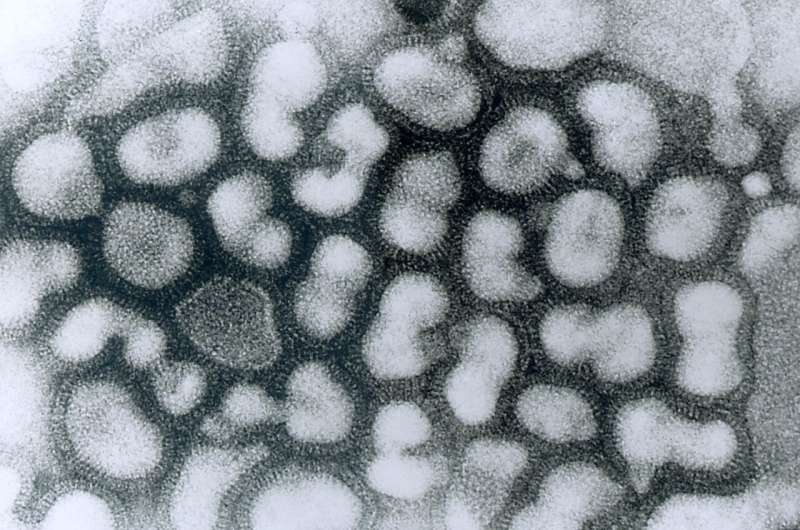Altered FGFR1 Signaling in the Hippocampus Linked to Depression, Especially in the Elderly

New research highlights the role of FGFR1 signaling disruption in the hippocampus as a key factor in depression, especially affecting the elderly’s response to treatment. The study offers promising targets for innovative therapies.
Recent research has shed light on the molecular mechanisms underlying depression, particularly focusing on changes within the hippocampus, a brain region crucial for memory and emotional regulation. Major depressive disorder (MDD) is prevalent worldwide, yet its precise molecular causes remain elusive. A team of scientists from KAIST has discovered that dysregulation of specific neural signaling pathways, rather than neuronal damage alone, may contribute to depression. Notably, their findings explain why older patients often show reduced responsiveness to conventional antidepressants.
Published in Experimental & Molecular Medicine, the study suggests that therapeutic strategies targeting neural signaling, such as optogenetics, could offer new treatment avenues. The researchers examined brain tissue from individuals who had committed suicide and used animal models to investigate the molecular basis of depression. Their focus was on the hippocampal dentate gyrus (DG), a key area for neurogenesis and emotional regulation.
Using two mouse models of depression—corticosterone stress and chronic unpredictable stress—they observed an increase in Fibroblast Growth Factor Receptor 1 (FGFR1) signaling in the DG. FGFR1 interacts with growth factors (FGF) to regulate cellular growth and differentiation. Further experiments with mice genetically modified to lack FGFR1 revealed heightened stress sensitivity and faster onset of depressive behaviors, underscoring FGFR1’s role in maintaining neural resilience.
The team developed an innovative optogenetic tool, called the 'optoFGFR1 system,' to activate FGFR1 using light. Activation of FGFR1 in depressed mice improved their behavior, demonstrating its potential as a therapeutic target. However, in aged depression models, activating FGFR1 alone was ineffective. Further investigation identified an overexpression of the protein 'Numb' in aged brains, which impairs FGFR1 signaling.
Postmortem analyses confirmed that Numb levels were elevated specifically in elderly patients with depression. When Numb expression was suppressed via gene regulation techniques while stimulating FGFR1, neurogenesis and behavioral abnormalities improved, even in aged models. This indicates that Numb acts as a blockade to FGFR1 signaling, hindering the hippocampus’s ability to recover from depression.
KAIST’s Professor Won Do Heo explained that their findings reveal depression can arise from disrupted neural signaling pathways, not just neuronal damage. His team’s work provides a molecular explanation for the decreased effectiveness of antidepressants in elderly patients, highlighting Numb as a promising therapeutic target. This interdisciplinary study combines neuroscience with forensic brain analysis, bridging basic research and clinical applications.
Overall, this research paves the way for innovative treatments targeting neural signaling pathways, especially for cases resistant to current antidepressants in the elderly. The approach of modulating specific proteins like Numb could revolutionize depression therapy in aging populations.
Source: https://medicalxpress.com/news/2025-08-fgfr1-pathway-hippocampus-underlie-depression.html
Stay Updated with Mia's Feed
Get the latest health & wellness insights delivered straight to your inbox.
Related Articles
A Simple and Precise Approach to Assess Movement Disorder Severity in Children
A new simple and objective method enhances the accuracy of assessing movement disorder severity in children with cerebral palsy, enabling earlier and tailored treatments.
Understanding the Risks and Regulations of Using Overseas Sperm Donors in IVF Treatments
Recent reports highlight the risks and regulatory challenges of using overseas sperm donors in IVF, emphasizing the need for improved oversight and transparency in Australia's fertility sector.
Innovative Antibody Cocktail Shows Potential to Combat Multiple Strains of Influenza
Scientists develop a promising antibody cocktail that offers robust, mutation-resistant protection against various influenza A virus strains, potentially revolutionizing flu treatment.
Understanding Glucose Transport Failures in Type 2 Diabetes
Research reveals how impaired GLUT transporter trafficking in pancreatic β-cells contributes to decreased insulin secretion in type 2 diabetes, opening new therapeutic possibilities.



